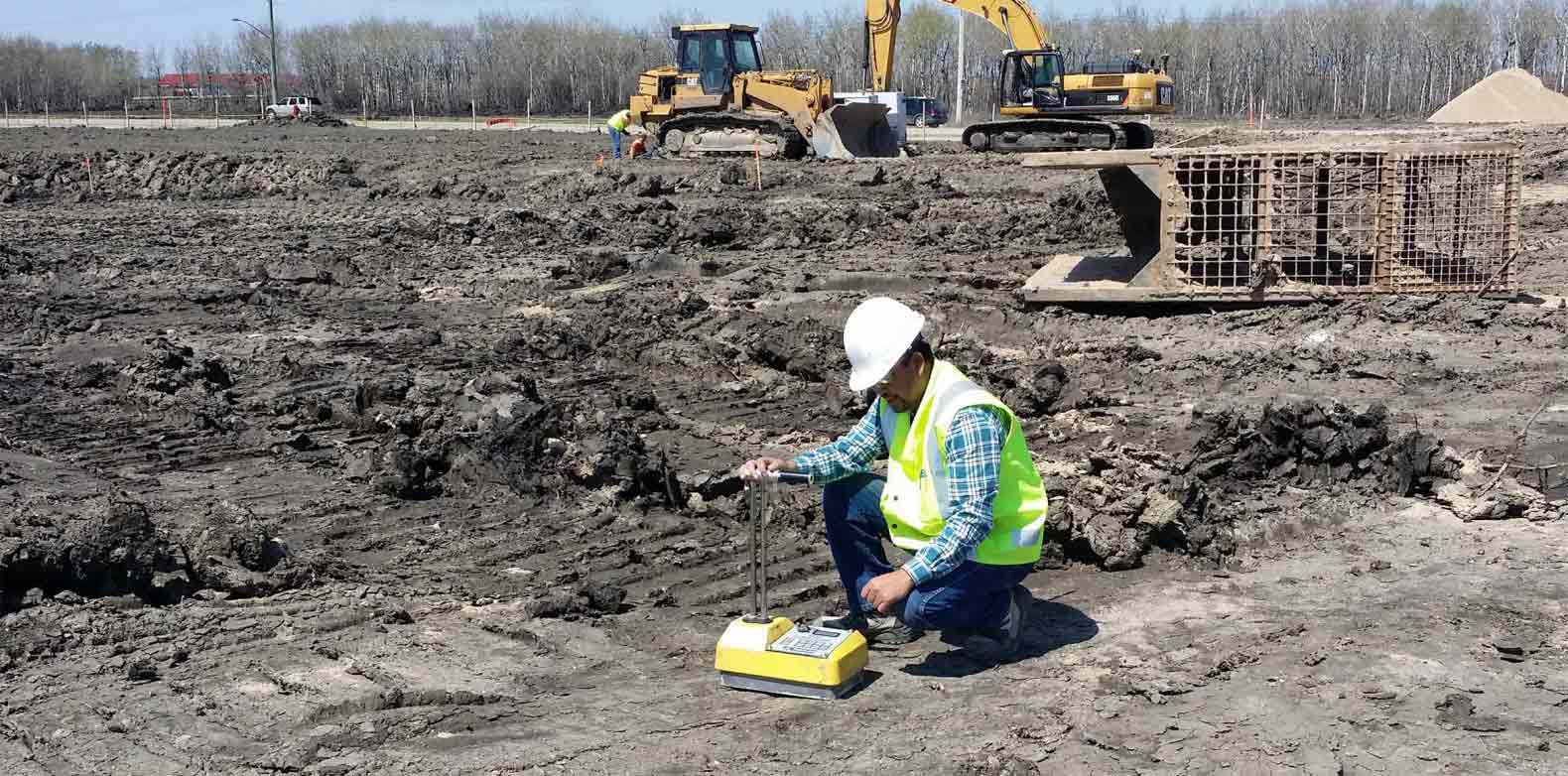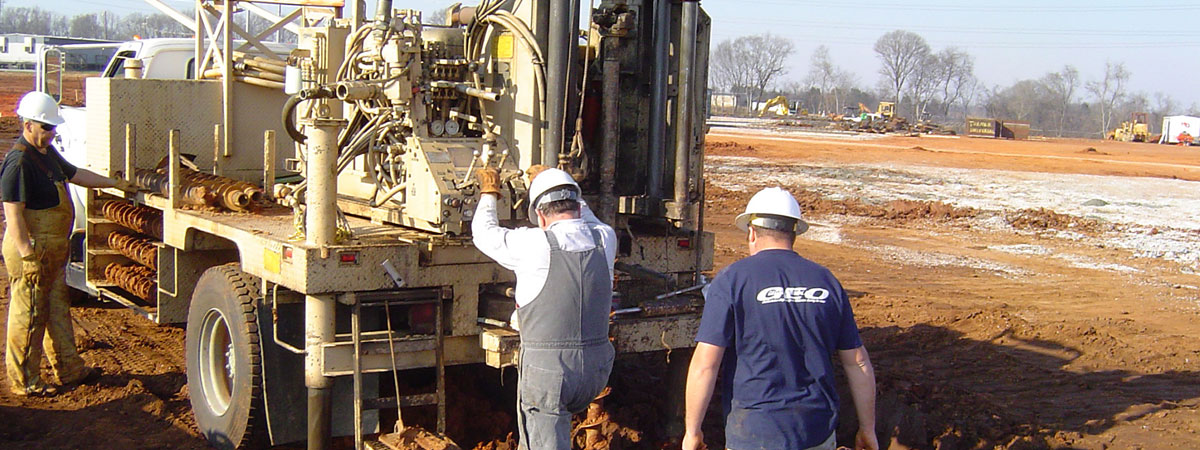The Advantages of Partnering with a Leading Consulting Engineer for Your Organization Needs
The Advantages of Partnering with a Leading Consulting Engineer for Your Organization Needs
Blog Article
Comprehending the Necessary Function of the Geotechnical Industry in Modern Construction Projects and Facilities Advancement
The geotechnical industry is a foundation of modern-day building and framework growth, giving essential understandings right into dirt habits that straight affect project outcomes. Via advanced soil evaluations and cutting-edge engineering remedies, geotechnical specialists not just ensure structural honesty however likewise address sustainability issues in the middle of developing ecological requirements.
Relevance of Dirt Assessment
Dirt evaluation plays a vital function in the geotechnical industry, functioning as the foundation for notified decision-making in construction jobs. Exact soil evaluation is essential for identifying the viability of a site for numerous kinds of structures, including residential homes, industrial buildings, and bridges. By analyzing soil composition, moisture, strength, and thickness content, engineers can anticipate possible obstacles and mitigate dangers connected with ground instability, erosion, and negotiation.
The evaluation procedure commonly includes a series of tests and observations that give essential information concerning the subsurface problems. This data educates the layout and building processes, making certain that structures are constructed on strong ground with appropriate assistance. Recognizing the dirt profile makes it possible for engineers to choose appropriate building and construction techniques and materials, optimizing resource use and minimizing costs.
Along with ensuring architectural honesty, dirt evaluation adds to ecological sustainability. By determining potential contamination or damaging effects on bordering ecological communities, engineers can carry out approaches to safeguard these natural deposits. On the whole, complete dirt evaluation is crucial in the geotechnical area, underpinning the safety and security, performance, and ecological responsibility of construction jobs.
Secret Geotechnical Techniques
A range of vital geotechnical techniques are employed to enhance the security and evaluate and performance of building websites. One foundational technique is soil sampling and testing, which permits designers to figure out the physical and chemical residential properties of the ground. This info is essential for making informed decisions pertaining to structure style and building and construction methods.
One more crucial method is site characterization, which includes the in-depth evaluation of soil and rock problems with approaches such as borehole drilling and in-situ screening. Techniques like Requirement Infiltration Examinations (SPT) and Cone Penetration Examinations (CPT) provide useful data on soil stamina and stratigraphy.
Ground enhancement techniques, such as dirt stabilization and grouting, are likewise essential in boosting the load-bearing capacity of weak dirts. These methods can mitigate negotiation and enhance total site conditions.
Furthermore, slope stability analysis is vital for determining prospective landslide threats and making sure the safety and security of excavations. This evaluation frequently employs mathematical modeling and restriction stability approaches to predict dirt habits under various problems.
Integrating these geotechnical methods into building and construction planning not only maximizes job results but additionally ensures the lasting sustainability of facilities growth.
Influence On Construction Safety

Furthermore, effective geotechnical engineering involves carrying out mitigation techniques for determined dangers. This may consist of soil stablizing techniques, maintaining structures, or water drainage systems to relieve hydrostatic pressure. By attending to these factors, construction groups can decrease the likelihood of accidents and enhance employee safety and security.
In addition, continuous surveillance of site conditions is important during building and construction. Geotechnical instruments can supply real-time data regarding ground motion and security, permitting for prompt interventions when required.
Basically, the geotechnical industry plays an essential duty in guarding construction projects. By focusing on ground integrity and utilizing strenuous evaluation approaches, the geotechnical field not just secures the workforce yet also adds to the long life and dependability of built facilities.
Sustainability in Geotechnical Practices

Moreover, geotechnical designers are now employing advanced technologies, such as geosynthetics, which boost dirt security while lowering the quantity of material needed. This not only saves resources however also results in much less waste generation (tailings engineer). The combination of lasting design principles into geotechnical engineering motivates making use of sustainable energy sources in building procedures, better reducing carbon emissions
By carrying out these evaluations, geotechnical specialists can establish strategies that minimize negative impacts, making certain compliance with ecological regulations. Overall, the emphasis on sustainability within geotechnical methods not only contributes to the longevity and resilience of facilities yet likewise promotes a liable strategy to land and resource monitoring.
Future Trends in Geotechnical Design
Development is driving the future of geotechnical engineering, as arising modern technologies and methods improve the industry. The combination of sophisticated information analytics and expert system is readied to reinvent site investigation and danger assessment, allowing designers to make more educated choices based on real-time information. The use of geosynthetic products is acquiring traction, using sustainable remedies that improve soil stability and decrease environmental impact - geo tech engineer.
One more significant pattern is the fostering of automated and robot systems for surveillance and building and construction procedures. These innovations not just enhance precision yet also improve safety and security by reducing human involvement in harmful environments. Additionally, the implementation of Building Details Modeling (BIM) in geotechnical style assists in boosted collaboration among stakeholders, optimizing project shipment and minimizing prices.
As climate adjustment presents brand-new difficulties, the market is progressively concentrating on resilience and versatility in layout methods, making certain infrastructure can hold up against extreme weather condition occasions. The recurring fad towards sustainability will certainly drive advancement in look at this now environment-friendly materials and methods, straightening geotechnical design with wider environmental goals. Jointly, these trends will certainly shape a more reliable, lasting, and durable geotechnical landscape for future projects.
Conclusion

The geotechnical sector is a foundation of modern-day building and construction and facilities advancement, giving vital insights right into soil behavior that straight influence task results. tailings engineer.Dirt analysis plays a crucial duty in the geotechnical industry, offering as the structure for notified decision-making in construction jobs. In general, detailed dirt evaluation is crucial in the geotechnical field, underpinning the safety, efficiency, and environmental obligation of construction projects
Building and construction safety is significantly affected by geotechnical methods, as the stability and honesty of the ground straight influence the total safety of a construction website.In conclusion, the geotechnical industry is crucial in contemporary construction and infrastructure advancement, giving vital assessments that make certain architectural integrity and safety.
Report this page